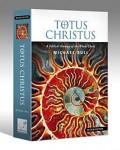The Two Witnesses
The one who conquers and who keeps my works until the end, to him I will give authority over the nations, and he will rule them with a rod of iron, as when earthen pots are broken in pieces, even as I myself have received authority from my Father.
Christ refers here to Psalm 2. It had been fulfilled in the “head” at His ascension. At this point, it was yet to be fulfilled in the “body.”
“Why do the nations rage and the peoples plot in vain?
The kings of the earth set themselves,
and the rulers take counsel together,
against the Lord and against his Anointed, saying,
“Let us burst their bonds apart
and cast away their cords from us.”
He who sits in the heavens laughs;
the Lord holds them in derision.
Then he will speak to them in his wrath,
and terrify them in his fury, saying,
“As for me, I have set my King on Zion, my holy hill.””
Jesus’ reference to this Psalm here is striking for two reasons. Firstly, it settles the matter of whether or not earthly Jerusalem is the city of God. Christ was set on the holy hill (the throne of David) at His ascension, and it was in heaven, not in Palestine. Secondly, this promise of divine authority over the nations is opened to the faithful saints:
“I will tell of the decree: The Lord said to me,
“You are my Son; today I have begotten you.
Ask of me, and I will make the nations your heritage,
and the ends of the earth your possession.
You shall break them with a rod of iron
and dash them in pieces like a potter’s vessel.””
Any faithful saint, as one like the Son of Man, should now be feared by the rulers of the Land:
“Now therefore, O kings, be wise; be warned, O rulers of the Land.
Serve the Lord with fear, and rejoice with trembling.
Kiss the Son, lest he be angry, and you perish in the way,
for his wrath is quickly kindled.
Blessed are all who take refuge in him.”
This organic sharing of Christ’s authority is demonstrated when the church prays part of Psalm 2 in Acts 4:25-6. They identify the nations, kings, peoples and rulers as “Herod and Pontius Pilate, with the Gentiles and the people of Israel” (v. 27). However, they go on to identify the “Anointed” as Peter and John, who are suffering from the same “threats.” Again, in Acts 9:1, Saul was “breathing” murderous threats against the Lord’s disciples, yet in v.4, the Lord asks of him, “Saul, Saul, why are you persecuting me?” This might explain the identity of the “glorious ones” whom the false prophets reviled in 2 Peter 2:10. Peter Leithart comments:
“The condemnation of the false teachers for blaspheming “glories” is a continuation of the example concerning Sodom… in second Peter 2:10-12, what we have is a charge that these false teachers revile or blaspheme the “glories,” the angelic messengers, the apostles, in literal terms, who are warning them as the angels warned Lot to escape from the city of destruction. In 2:11, angels who are greater in might and power do not bring reviling judgments against them before the Lord. That simply repeats what Peter says in his first letter. When reviled, Jesus did not revile in return, which is an example for us. The “glories” that are reviled and blasphemed by these false teachers don’t respond in kind.” 1
This identification of the apostles with the angels who rescued Lot is more important than it may seem at first. As we observed earlier, the angels were “two witnesses.”
1 Peter J. Leithart, 1999 Biblical Horizons Conference lecture on 2 Peter 2. www.wordmp3.com


























